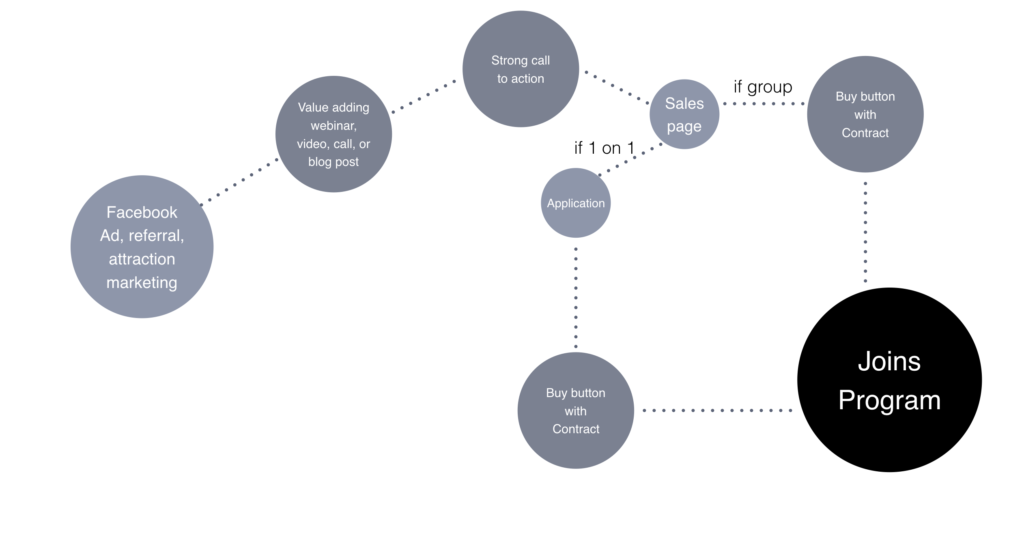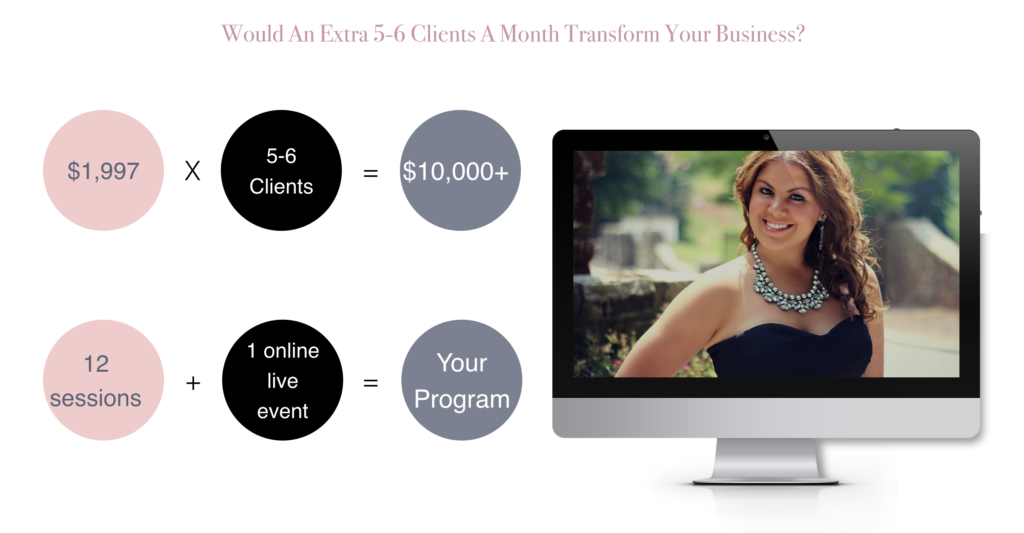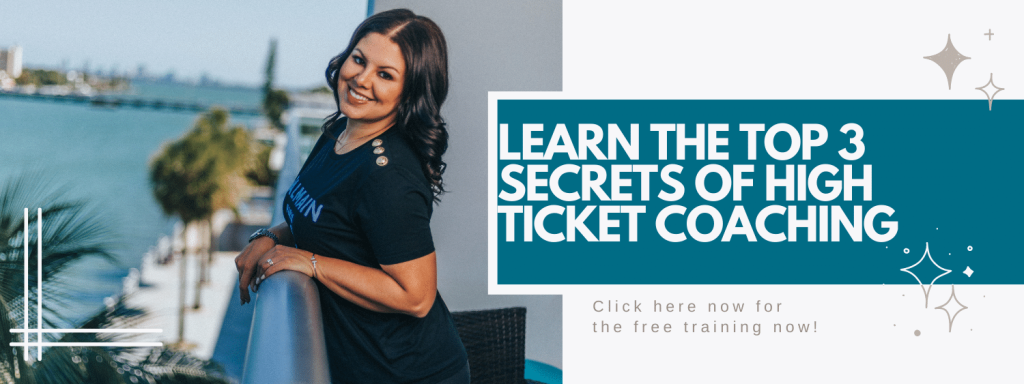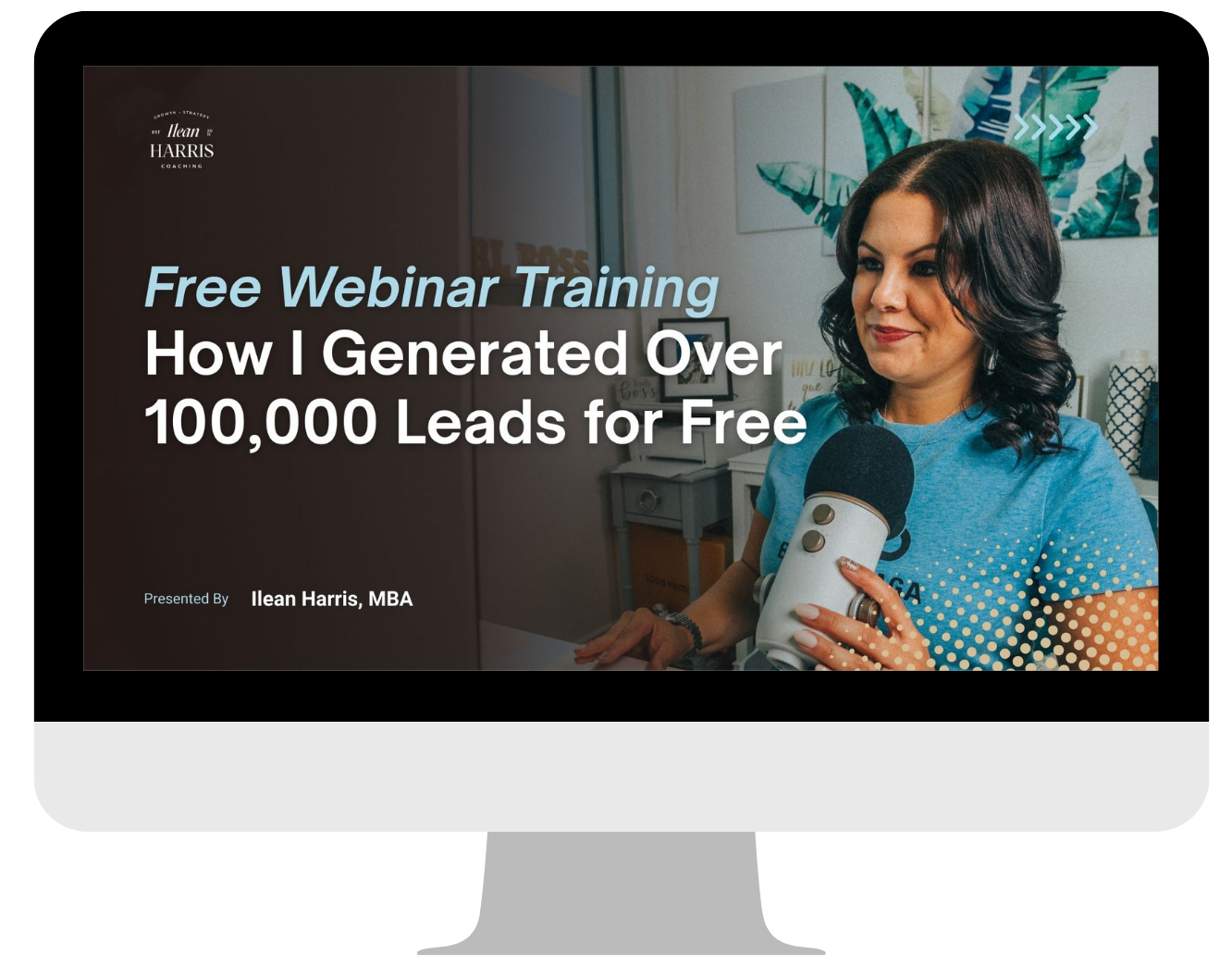
This post is all about blogging for business.
Blogging has become a crucial component of any successful online business strategy, and it’s no different for coaches and course creators.
Whether you’re looking to build your brand, generate leads, or establish yourself as an industry expert, blogging can help you achieve these goals and more.
After working with coaching clients in over 20 countries and selling dozens of different e-courses I created in both Spanish & English, I know how powerful it is to have a great strategy to promote your online business.

Blogging is an excellent way to establish yourself as an expert in your field.
By regularly publishing high-quality blog posts that provide value to your readers, you can build trust and credibility with your target audience. This can lead to more leads, clients, and sales.
Learn more about blog success here.
Blogging is also an effective way to drive traffic to your website. By creating content that’s optimized for search engines, you can attract more organic traffic to your site and increase your visibility online. This can lead to more leads and clients for your coaching or course business.
Finding Your Niche and Target Audience Before you start blogging, it’s important to identify your niche and target audience. This will help you create content that resonates with your readers and drives engagement.
Your niche should be a specific area of focus within your industry, and your target audience should be the group of people who are most likely to be interested in your coaching or course offerings.
To find your niche and target audience, start by conducting market research. Look at your competitors and identify areas where you can differentiate yourself. Talk to your existing clients or customers and ask them about their needs and pain points. Use this information to develop a content strategy that speaks directly to your target audience.
Blogging for Business: The Ultimate Guide for Coaches and Course Creators
Creating a Content Strategy Developing a content strategy is essential for any successful blogging campaign. This involves identifying your goals, defining your target audience, and creating a plan for your content. Your content strategy should include the following:
- Goals: What do you hope to achieve with your blog? Are you looking to build your brand, generate leads, or establish yourself as an industry expert?
- Target audience: Who are you writing for? What are their needs and pain points? What topics are they interested in?
- Content types: What types of content will you create? Will you publish how-to guides, listicles, case studies, or something else?
- Content frequency: How often will you publish new content? Will you post daily, weekly, or monthly?
- Content promotion: How will you promote your blog? Will you use social media, email marketing, or other channels to drive traffic to your site?
Writing High-Quality Blog Posts To be successful at blogging:
You need to write high-quality blog posts that provide value to your readers. Here are some tips for writing great blog posts:
- Research your topic: Before you start writing, do your research. This will help you create content that’s accurate and informative.
- Organize your ideas: Structure your blog post in a way that’s easy to follow. Use subheadings and bullet points to break up your content and make it more digestible.
- Write in a clear and concise manner: Write in a way that’s easy to read and understand. Use simple language and avoid jargon.
- Use visuals: Use images, videos, and infographics to make your content more engaging and visually appealing.
- Edit and proofread: Before you hit publish, make sure to edit and proofread your blog post. This will help you catch any spelling or grammatical errors.
Promoting Your Blog Promoting:
Your blog is crucial for getting your content in front of your target audience.
Here are some ways to promote your blog:
- Leverage social media: Share your blog posts on social media platforms such as Facebook, Twitter, LinkedIn, and Instagram. Use relevant hashtags and tags to increase visibility.
- Use email marketing: Send out newsletters to your email list, including links to your latest blog posts. This will help keep your subscribers engaged and up-to-date on your latest content. Learn more about email marketing here now.
- Collaborate with others: Partner with other coaches or course creators in your industry and cross-promote each other’s content.
- Guest blogging: Write guest blog posts for other websites in your industry. This can help increase your visibility and bring new readers to your blog.
Measuring and optimizing your blog performance:
Measuring and optimizing your blog performance is essential for identifying what’s working and what’s not.
Here are some ways to measure and optimize your blog’s performance:
- Track your blog’s traffic: Use Google Analytics or other website analytics tools to track your blog’s traffic. This will help you understand how many people are visiting your blog and which pages are most popular.
- Analyze engagement metrics: Look at engagement metrics such as time on page, bounce rate, and comments to understand how engaged your audience is with your content.
- A/B testing: Experiment with different headlines, content formats, and calls to action to see what resonates best with your audience.
- Optimize for SEO: Use keyword research to optimize your blog posts for search engines. This will help increase your visibility and attract more organic traffic to your blog.
By promoting your blog and measuring and optimizing your blog’s performance, you can attract more readers, engage with your audience, and ultimately grow your coaching or course creation business.
Lead generation and blogging for business:
Lead generation is crucial for coaches and course creators to grow their business. One effective strategy for lead generation is to use lead magnets and evergreen webinars.
Lead magnets are free resources such as ebooks, checklists, or templates that you offer in exchange for someone’s contact information.
By offering valuable content, you can attract potential clients and build your email list. For example, a coach could create an ebook on “10 Tips for Overcoming Procrastination” and offer it as a lead magnet on their website.
Evergreen webinars are pre-recorded webinars that can be accessed at any time by anyone. They are a great way to educate your audience about your coaching or course offerings and generate leads.
Learn all about to generate leads and sales daily on auto-pilot here.
By offering valuable content, you can establish yourself as an expert and build trust with potential clients. For example, a coach could create an evergreen webinar on “How to Achieve Your Goals in 90 Days” and promote it through social media and email marketing.
Blogging is another effective strategy for lead generation. By creating valuable blog content that solves your audience’s pain points, you can attract potential clients to your website.
Once they’re on your site, you can offer them a lead magnet or direct them to your evergreen webinar to further nurture the relationship. Additionally, blogging helps establish you as an expert in your industry, which can increase your credibility and help you stand out from competitors.
Learn more about lead generation here.
When it comes to using lead magnets, evergreen webinars, and blogging for business, it’s important to have a clear and consistent strategy. Make sure your lead magnets and evergreen webinars align with your coaching or course offerings and provide real value to your audience. Additionally, make sure your blog content is optimized for search engines and shareable on social media to increase its reach.
By using lead magnets, evergreen webinars, and blogging in your lead generation strategy, you can attract potential clients, establish yourself as an expert, and ultimately grow your coaching or course creation business.
Is blogging for business just as important as posting on social media?
Blogging for business is just as important as posting on social media because it provides several benefits that social media alone cannot provide.
First, blogging allows for more in-depth and comprehensive content than social media posts. With a blog, you have more space to address complex topics, share case studies, and provide detailed explanations of your coaching or course offerings.
This allows you to provide more value to your audience, establish yourself as an expert in your industry, and build trust with potential clients.
Second, blogging helps with search engine optimization (SEO). Search engines like Google favor websites that have fresh and relevant content, and blogging is a great way to consistently produce new content that can help boost your website’s visibility in search engine results.
This can lead to increased traffic to your website, which can ultimately lead to more leads and clients.

Third, blogging allows for greater control over your content and messaging. While social media algorithms can change at any time, your blog is your own platform that you have complete control over.
This allows you to craft your messaging in a way that aligns with your brand and values, and allows you to promote your coaching or course offerings in a way that is strategic and effective.
Finally, blogging can help with lead generation and lead nurturing. By creating valuable blog content that addresses your audience’s pain points and interests, you can attract potential clients to your website and encourage them to engage with your brand.
Once they’re on your website, you can offer them a lead magnet or direct them to your evergreen webinar, as mentioned earlier, to further nurture the relationship and potentially convert them into paying clients.
Learn more about blog success here now.
Overall, while social media is an important tool for building brand awareness and engaging with your audience, blogging for business provides unique benefits that can help you establish yourself as an expert, boost your website’s visibility in search engines, and generate leads and clients for your coaching or course creation business.
This post is all about blogging for business.










